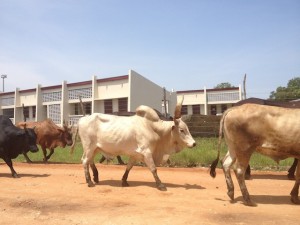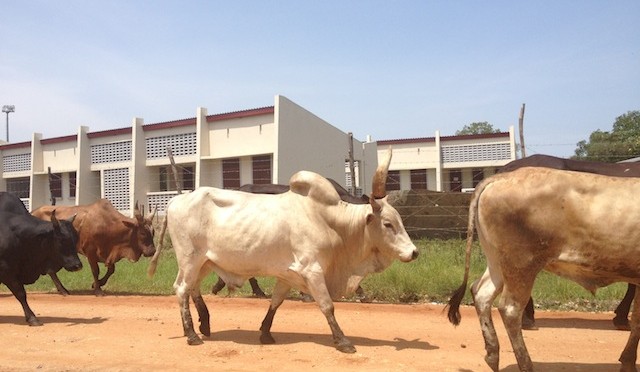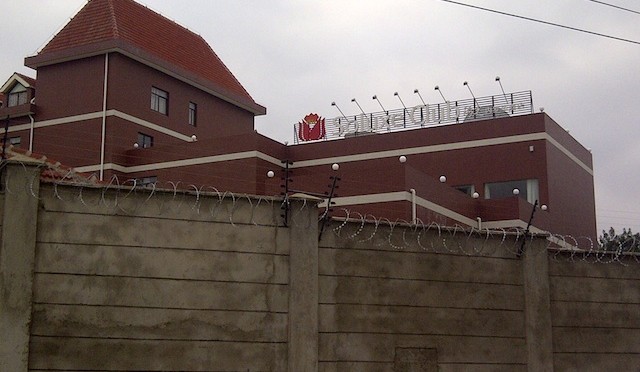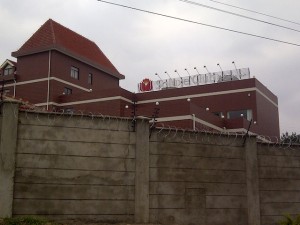@mankangwafo visits the world’s newest country – South Sudan
Getting there: Traveling to the Republic of South Sudan is not a simple task as few airlines serve Juba, the Capital and largest city in the world’s newest Republic. If you are coming from Nairobi, Kenya Airways (KQ), Fly540, and Jetlink (until last week) are your direct flight options. KQ has several daily flights to Juba and tickets range from US$400-$600, a steep price for a 90-minute flight. Edit: Other flights to Juba are with Egypt Air (via Cairo), Ethiopian Airlines (via Addis Ababa), and Air Uganda (via Entebbe).
While most eager businessmen and doe-eyed development workers might shell out the cost of a ticket, the government’s new visa requirements could be a hurdle for some. Applicants are expected to have invitation letters and business documents explaining the purpose of their trip. A single journey visa (valid for a month) costs US$100 and a multiple entry visa costs even more. Also required are two photos, a valid yellow fever card and a travel permit (if you had visited South Sudan before independence).
Once in Juba, getting through immigration, baggage claim and customs is daunting as the arrival lounge is a large empty space with few signs and no air conditioning. The heat is exacerbated by the large number of passengers struggling to claim their bags and get them checked by customs in no defined sequence – and unclear signage has some visitors claiming their bags before being checked by immigration instead of the other way round. There are no unexpected taxes at the airport and a cab ride into the heart of Juba town ranges from 30-45 South Sudanese Pounds (SSP) or (US$10–$15 at the official dollar rate). English is the national language, though most people speak Arabic as well.
Accommodation: Finding a decent hotel at an affordable price is a challenge as there is no apparent standard for hotels and bed and breakfasts. On average, a simple hotel room (either prefab or cement) ranges from US$160 – $400 with breakfast included. Full board prices can range between US$180 to US$500. But, the higher prices do not guarantee accommodation equal to a five-star hotel.
 |
| Cows block traffic on main road in Juba town. |
The most recent crisis between Sudan and South Sudan has gravely affected South Sudan’s economy and the cost of living has significantly increased, with inflation high and foreign reserves are low. The black market price of the SSP is almost 50% higher than its official rate. This, (among other reasons) coupled with the fact that it is a landlocked country with limited agricultural productivity, has caused food prices to be significantly higher now than they were a year ago. One can easily spend about 60SSP (US$20) on a meal of fish and chips. There are cheaper options, however, as you can find a delicious meal of ugali and Sukuma or foule in some restaurants.
Communications: Getting a local SIM card is pretty easy. Most people have two lines either Vivacell or Gemtel. For international calls, Gemtel is relatively cheaper than Vivacell. Unfortunately, neither Safaricom (Kenya) or T-Mobile (USA) SIM’s have network coverage in South Sudan. Other MTN subscribers are able to roam in most parts of the country, but getting data on mobile devices with Vivacell or Gemtel is difficult as it needs to be configured at headquarters.
South Sudan does not yet have a power grid. All electricity is supplied by generators further hampering the business environment and increasing the demand/importance of oil. Getting a steady Wi-Fi connection can be costly, and while most hotels have V-SAT’s and free Wi-Fi for guests, the bandwidth is usually really slow. The best time to get a decent connection is usually after 9 p.m. The costs for internet access ranges from about 1 – 4 SSP per minute, and cybercafés have 30 minute and hour-long bundles.
Social scene: There are several hotel restaurants, bars and barely a handful of clubs. That said, South Sudanese are very warm and welcoming. Most discussions there are about politics, football, nationalism and the future of the new republic. Unfortunately, I did not get to taste any typical South Sudanese food, but you can be sure to find a tasty dish of nyama choma, ugali and other East African delicacies. One unique thing to South Sudan is that it has its own beer labels, brewed locally. Try a Nile Special, White Bull or Club Pilsner—all local brewed by SABMiller.
Safety: Even though there have been more reports of crimes—particularly in the Jebel Hills—Juba is still relatively safe. There are police checkpoints along the main roads after midnight, but as a general rule, it would be wise to travel with a group of people and be mindful of your surroundings. While some foreigners have reported being harassed, I haven’t experienced that. As the country is still pretty new, there are few developed tourist sites. However, if you are into outdoor activity, a hike up Jebel hills is worth it.
Random fact: In South Sudan, there are SUVs—yes including Hummers and Porsches—everywhere. In fact, its not uncommon to see someone with a luxury SUV and no actual home. More recently, there are several matatu-style buses operating in Juba. I tried to take one but was advised against it because they do not always have defined routes.
Other Travel Tips:
- There are few ATMs in Juba, so be sure to have hard currency (preferably US$ or SSP). If carrying US$ make sure you have US$100 and US$50 notes—few places (if any) accept 1, 5, 10 or 20s. Also, make sure your US$ notes were printed after 2006.
- Do not forget to take malaria prophylactics at least two weeks before your trip to South Sudan and also try to get a typhoid vaccine.
- The quickest and cheapest way to get around the city is by Boda Boda. But, though efficient, Boda’s are a bit more dangerous in Juba than elsewhere in the region because of the rough terrain.
- Most hotels have potable water, but if traveling outside Juba be sure to carry a bottle or two of water.
- If you are traveling out of Juba have a mosquito net & insect repellent handy. There are few hotels outside the main cities and you might have to stay in a tukul (hut).





